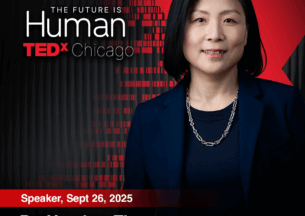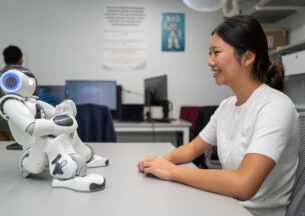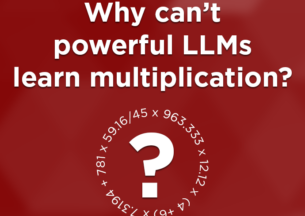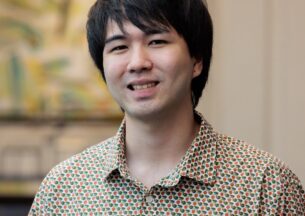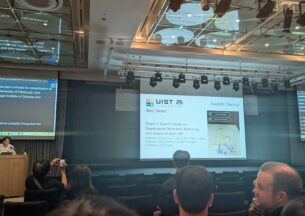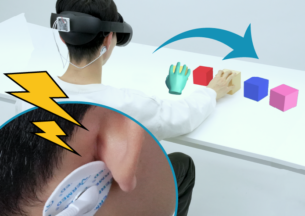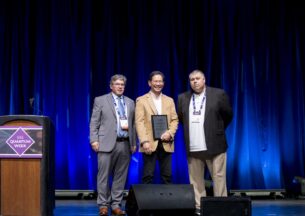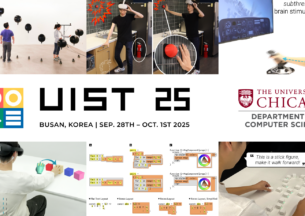Ph.D. Student Jibang Wu Receives the Stigler Center Ph.D. Dissertation Award for His Work Modeling the Incentive Structures of Reward and Recommendation–Based Systems

The University of Chicago’s Department of Computer Science is proud to announce that Jibang Wu, a final-year PhD student working in the SIGMA lab under the mentorship of Assistant Professor Haifeng Xu, is a recipient of the prestigious Stigler Center Ph.D. Dissertation Award. The Stigler Center awards up to five $5,000 dissertation awards for University of Chicago PhD students in their third, fourth, or fifth year who are in the advanced phases of a dissertation about political economy, regulation, or the various forms of subversion of competition by special interest groups. Wu’s recognition as a Ph.D. student in Computer Science marks the first time this award was granted to a student in the CS Department, signaling how AI and computer science as a whole is becoming increasingly relevant in this space.
While many CS students do computing and AI related research in the more traditional sense, Wu’s field of research uniquely intersects between economics, policy, and computer science, making him the perfect candidate for the Stigler award. He wrote his dissertation on strategic alignment and regulations on AI development, focusing on how today’s intelligent systems, despite their growing capabilities and influence, are neglecting critical incentive structures within their operating environments, which can lead to unintended and potentially harmful consequences.
 At the conceptual level, Wu studied different examples of Internet platforms, including recommendation systems, ride-sharing platforms, and data-driven systems such as college applications, academic conference peer reviews. In all of these cases, users have certain incentives to either boost a certain score, or hide specific pieces of information. In his dissertation proposal, Wu addresses these use cases by developing incentive-aware learning algorithms and data-driven mechanisms with statistical and computational efficiency guarantees. These initiatives aim to enhance the robustness of data-driven decisions in strategic environments, promote sustainable development of the Internet ecosystem and foster responsible AI practices.
At the conceptual level, Wu studied different examples of Internet platforms, including recommendation systems, ride-sharing platforms, and data-driven systems such as college applications, academic conference peer reviews. In all of these cases, users have certain incentives to either boost a certain score, or hide specific pieces of information. In his dissertation proposal, Wu addresses these use cases by developing incentive-aware learning algorithms and data-driven mechanisms with statistical and computational efficiency guarantees. These initiatives aim to enhance the robustness of data-driven decisions in strategic environments, promote sustainable development of the Internet ecosystem and foster responsible AI practices.
“As a kid, I was always interested in playing card games and board games,” Wu reflected. “I learned to strategize how to optimally play my hand, and it turns out that there’s a theory behind all this — game theory. This was something I’ve thought about in a less formal manner as a kid, and I thought it would be cool to pursue this passion in a formal way.”
Game theory is a field of study that explores how people make decisions when they are in situations where the outcome depends not just on their own choices, but also on the choices of others. It helps to predict what might happen when individuals or groups have to compete or cooperate to achieve their goals. One key component of this, therefore, is to study how to align incentives of these different parties that lead to mutually beneficial outcomes rather than conflict or suboptimal results. Wu’s dissertation proposal refers to this problem as “strategic alignment” — an avowed goal that has become especially popular in recent years with the rise of highly capable intelligent systems.
Wu uses Internet platforms as an example of how current technology does not prioritize user incentives.
“If some content gets a lot of activity, then it gets recommended more,” Wu explains. “But in this decision making process, there’s no such notion of the incentives of the users, content creators, or the long term objective of the platform, and the result is an echo chamber that ends up being detrimental to both the user and the platform.”
While his research has many societal implications, Wu has found it difficult to take his model from theory into practice.
“The unfortunate thing is, these companies are not interested in applying our algorithms because it requires revamping a lot of their existing architecture,” Wu reflects. “They don’t have a strong incentive to improve, arguably due to a lack of competition and regulations.”
However, Wu hopes that his research can act as a message to regulators and policy makers, by showing them theoretically-grounded evidence that it is possible to balance societal benefits with the company’s revenue, despite the common practices of many Internet platforms.
“Receiving the Stigler Award is very good news for me, because even though I personally think my research is very interesting, it’s not usually well recognized. This award strengthens my belief that the idea holds real promise and that our efforts have the potential to make a meaningful impact.”
Starting this fall, Wu is looking for a faculty position in the academic job market. He plans to continue to work on the strategic alignment problems in the emerging realm of generative AI, building incentive-aware AI agents and architecting more sustainable AI ecosystems. To learn more about Wu’s accomplishments and his work, please visit his website and the SIGMA Lab website here.


